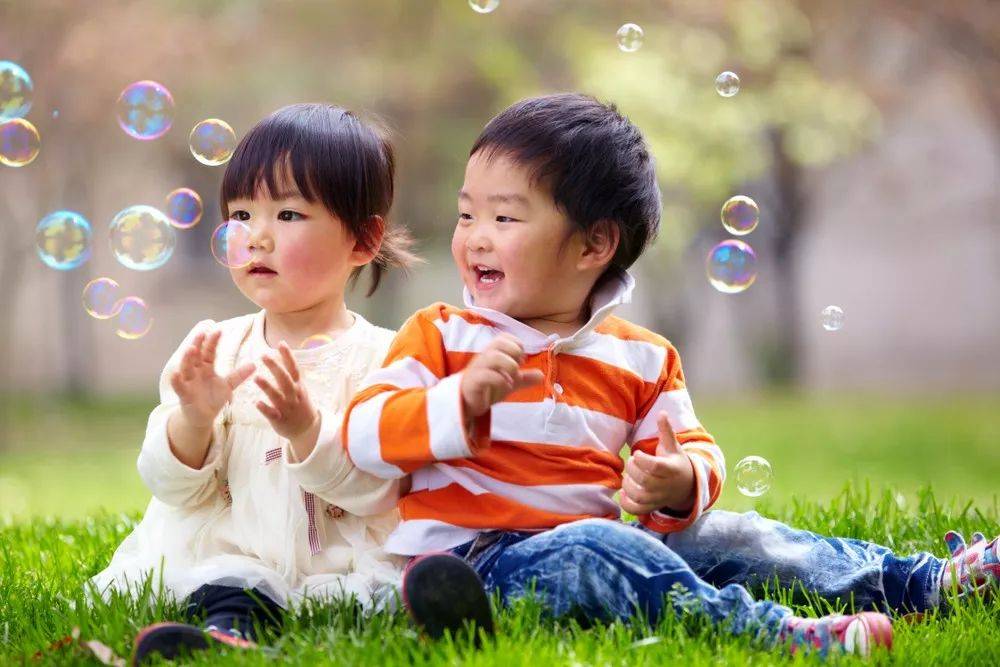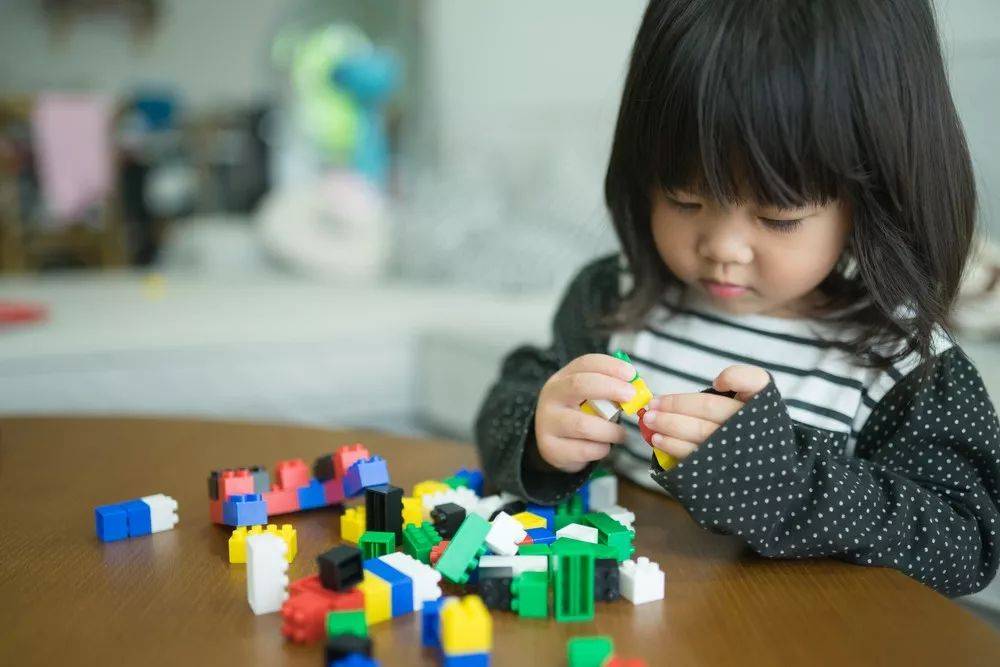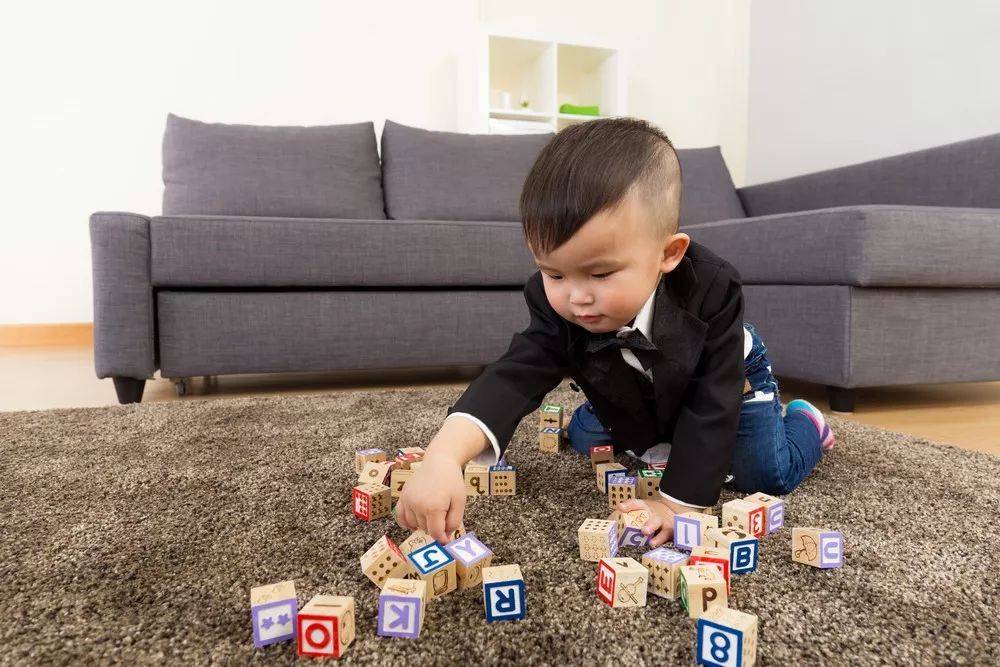
My children are hot for three minutes, and they have to do something else in less than five minutes to play anything.
When my son is not free, he cannot read any picture books bought at home.
I believe that parents who feel this way are not in the minority. How can a good child not sit still?
In fact, whether a child can immerse himself in the things in his hand is mainly determined by his concentration.
What does a child’s concentration have to do with it? How to cultivate children’s concentration? Today we ask Mr. Zhao Quanyu to have a good talk.
It is normal for children not to concentrate.
Many parents feel that children are often attracted by unimportant things, which is a sign of insufficient concentration.
In fact, this kind of judgment is slightly arbitrary. For babies aged 1-4, it is normal not to focus.
Children play outdoors, attracted by small flowers for a while, and then run to see small ants. This state is called casual attention. Children seem to be not focused at all, but in fact it is this state that inspires him to explore the world, which is very necessary for children.
The opposite of random attention is intentional attention, which refers to the state of attention that requires willful efforts, which is what we usually call concentration.
The generation of this concentration is slow and is mainly related to the child’s brain development level.
The functional area of our brain, which is mainly responsible for rationality, reflection and self-regulation, is called frontal lobe. For example, we all have the desire not to go to work, but we still obey the rules of work. This is the frontal lobe that plays a role.
Unfortunately, the frontal lobe will not fully develop until about 25 years old. Before that, the effect of frontal lobe volatilization could not compete with human instinct in most cases.
Parents always feel that children aged 3 or 4 are not focused, which is really wrong to them. People just haven’t developed to a stage where they can be particularly focused.
Children’s concentration is not as good as that of their peers, which may be due to parents.

Seeing this, some parents will ask, although concentration is related to the state of brain development, why is the concentration of our children still lower than that of their peers?
In fact, the quality of children’s concentration is mainly related to the family environment. Many parents, while complaining about their children’s poor concentration, do bad things with good intentions, inadvertently destroying the cultivation of children’s concentration.
1. Children are alone in a messy environment,
When parents always want to give their children better, they arrange their children’s game environment rich and warm, with toys, picture books and so on all piled in it.
Children’s concentration is already limited. Once attracted by these things, it is even more difficult to concentrate on what they are doing.
2. Interrupting your child from time to time
The child was concentrating on building blocks. When the mother prepared the meal, she immediately shouted, “Baby, come to eat!” If the child does not come, shout again and again until the child drops the building blocks and runs to eat.
The child was concentrating on reading the picture book. When a guest came to the house, the father shouted, “Baby, come and say hello to uncle.” If the child does not come, he will shout repeatedly until the child puts down the book to say hello.
These scenes are believed to be very common in our family life. These unconscious interruptions by parents have destroyed the continuity of children’s attention. Over time, children’s natural concentration is poor.
3. Forcibly instruct children
There are also times, for example, when children are concentrating on drawing, parents go behind them to have a look in order to better accompany their children. It doesn’t matter if they look at it, they are busy guiding: [should draw like this, should draw like that]. Children have to put down their pens and listen to parents’ guidance.
When children concentrate on doing things, it is actually the process of improving their concentration.
Parents’ forced guidance not only interferes with children’s thinking, but also causes instability of attention. It is no wonder that children are often distracted in doing things.
To protect children’s concentration, parents should do these three things.

1. Respect the rhythm of children and find the right access time.
When we say that parents should not disturb their children, we do not mean that they should completely let it go. Only by giving correct guidance at the critical time can they help their children’s concentration continue.
The specific what intervention actually depends on the child’s state.
If the child obviously encounters difficulties, I will usually observe for a period of time. If he can solve the difficulties by himself, I have no need to intervene.
If he can’t solve the difficulties, but his mood is stable, then I will let him grope for a while. After all, the child has gone through the process of solving the difficulties before he can make progress.
When I obviously feel the child’s irritability, I will calm his mood and give inspiration from the side so that he will not feel helpless.
When my daughter was a child, she built building blocks. The building blocks always fell off, but she didn’t want to lose her temper. I watched silently and didn’t speak.
After three or four times, she finally succeeded.
I can clearly feel that when she built the building blocks, she spent more time focusing, because with successful experience, she was confident to solve the problem and more willing to try again and again.
2. Reasonably expect and prepare toys that meet children’s standards.
The child could not sit still, and some parents came to the conclusion that the child’s concentration was poor based on subjective feelings.
In fact, most children’s concentration is up to standard. Due to individual differences, there are indeed slight differences between children.
However, as long as the child can enter the state of concentration quickly and return to the original task quickly after distraction, concentration is good.
Most parents do not understand the law of their children’s development and overestimate their children’s abilities, so that toys and activities prepared for their children greatly exceed the age range of their children.
Give Lego small particles to 2-year-old children and teach children under 3 years old to calculate addition and subtraction of more than 10… children can’t do it, naturally they are not interested, how to focus?
Only by preparing articles and activities that meet his ability can the child have the hope of completing the task, which is the basis for cultivating the child’s concentration.
3. Give up guidance and participate in it.

We said that parents should not disturb and guide their children when they concentrate on their activities. What if the children want adults to participate?
My daughter often invites me to jigsaw puzzles, draw pictures and build building blocks together. At this time, what parents have to do is not to tell their children that they should do this or that, but to become his comrades and complete the task together.
You draw pictures, build castles and complete jigsaw puzzles together. When you become the alliance of your child, you are naturally not disturbing him, but helping and guiding him.
The child’s attention is also focused on the activity itself. Your participation has given him more confidence and inspiration. He is more confident, so he is willing to spend more time on the task.
The improvement of children’s concentration cannot be achieved overnight. It requires continuous guidance from parents.
